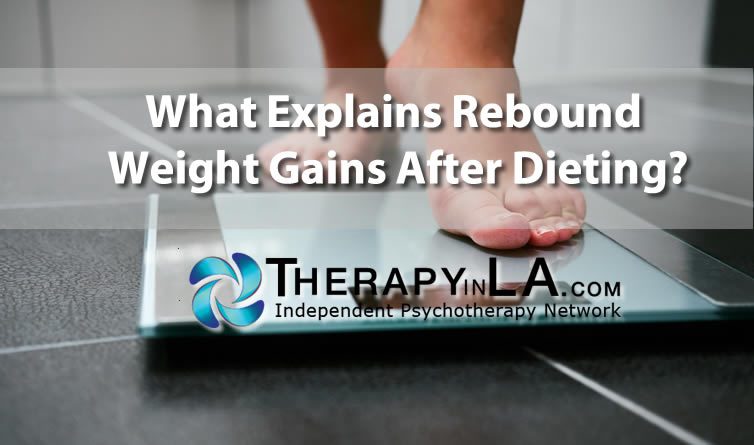What Explains Rebound Weight Gains After Dieting?
What Explains Rebound Weight Gains After Dieting?
A previous blog on the frequent lack of success for commercial weight loss programs can be supplemented by a more recent study. Many people experience a “rebound” effect after a diet, during which they re-gain most, if not all, the weight lost; sometimes even gaining back more in the long run to end up a higher weight than their starting point for their diet. Researchers are beginning to know that “metabolic changes” may explain this ( http://www.ideafit.com/fitness-library/hunger-and-satiety-hormones-high-after-diet-and-exercise-induced-weight-loss ).
When weight loss is due to a diet, or deprivation, there is a “hunger hormone” (ghrelin) that increases. Being satisfied by food (“satiety”) actually decreases due to other hormones being lower (peptide YY and peptide-1). On the other hand, when exercise creates weight loss, hunger hormones also increase, but satiety also increases.
One study with 35 “severely obese” adults investigated hormonal changes to weight loss brought on by diet compared to exercise. The plan involved a 500 calorie per day diet, along with high levels of fruits and vegetables; energy sources were divided as 50% from carbohydrates, 30% from fat, and 20% from protein. Several three week stays at the research facility included regular physical activity of at least 60 minutes on most days, and at least 2-3 sessions per week at home of resistance work.
Most participants were able to sustain their weight loss during a two-year follow-up period. Even though hunger feelings and hormone levels remained high after the weight loss, the hormones related to satiety also stayed high. So, even though people can sustain weight loss, they continue to experience higher levels of hunger. It seems that exercise is the key to also experiencing higher levels of satisfaction after eating as well.
From a more psychological perspective, this explanation of the biological mechanisms of hunger and weight loss, fails to include the question of how people tend to use and mis-use food as a powerful and convenient way to relieve tension, stress, and anxiety. Identifying such triggers to over-eating and developing alternative ways to gain relief is very much a focus of individualized psychotherapy.
Alan M. Solomon, Ph.D. is a clinical psychologist in private practice in Torrance, CA. A member of the Independent Psychotherapy Network, he can be reached at 310 539-2772 or dralanms@gmail.com
Copyright 2019 by Alan M. Solomon, Ph.D.

